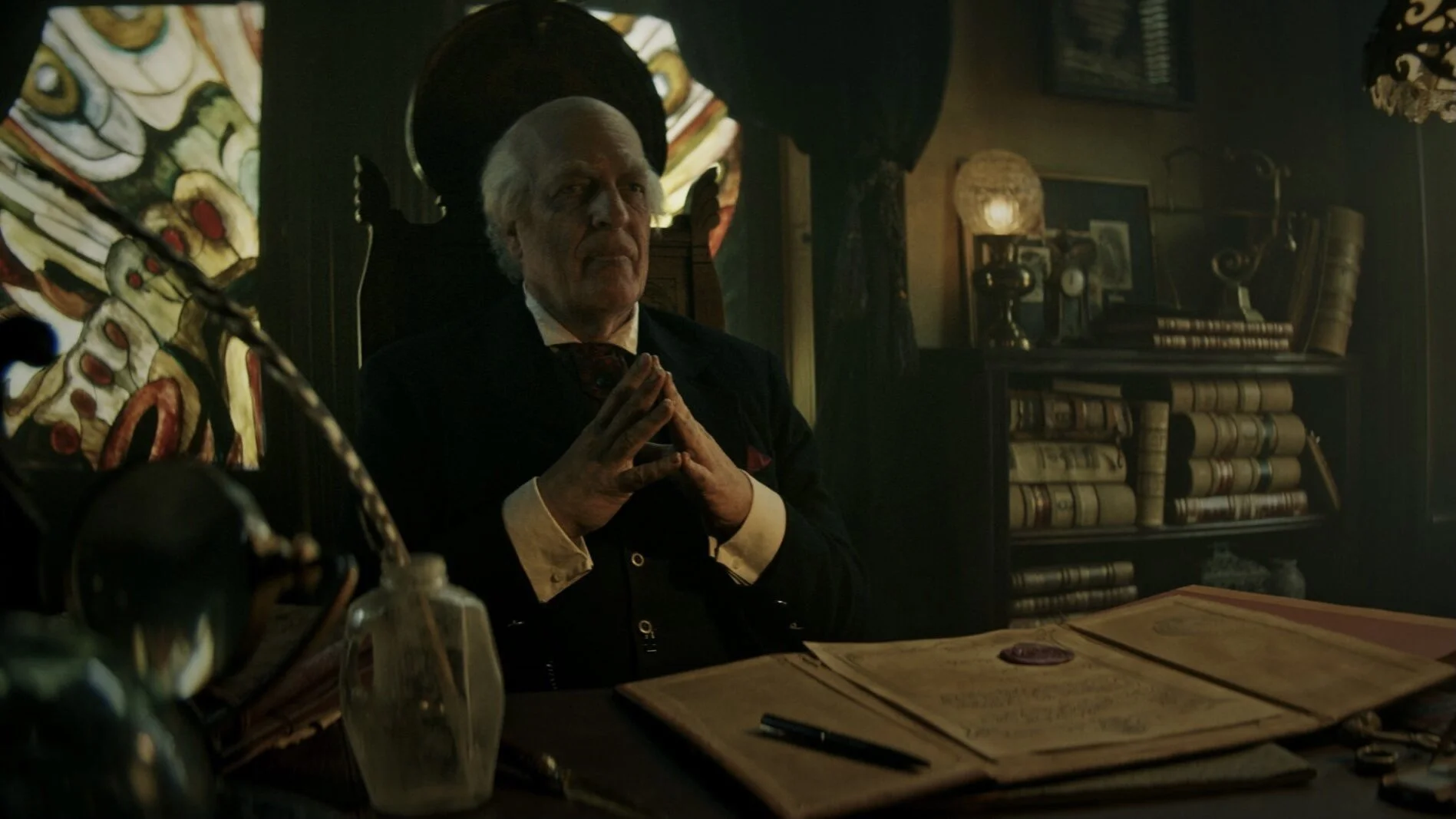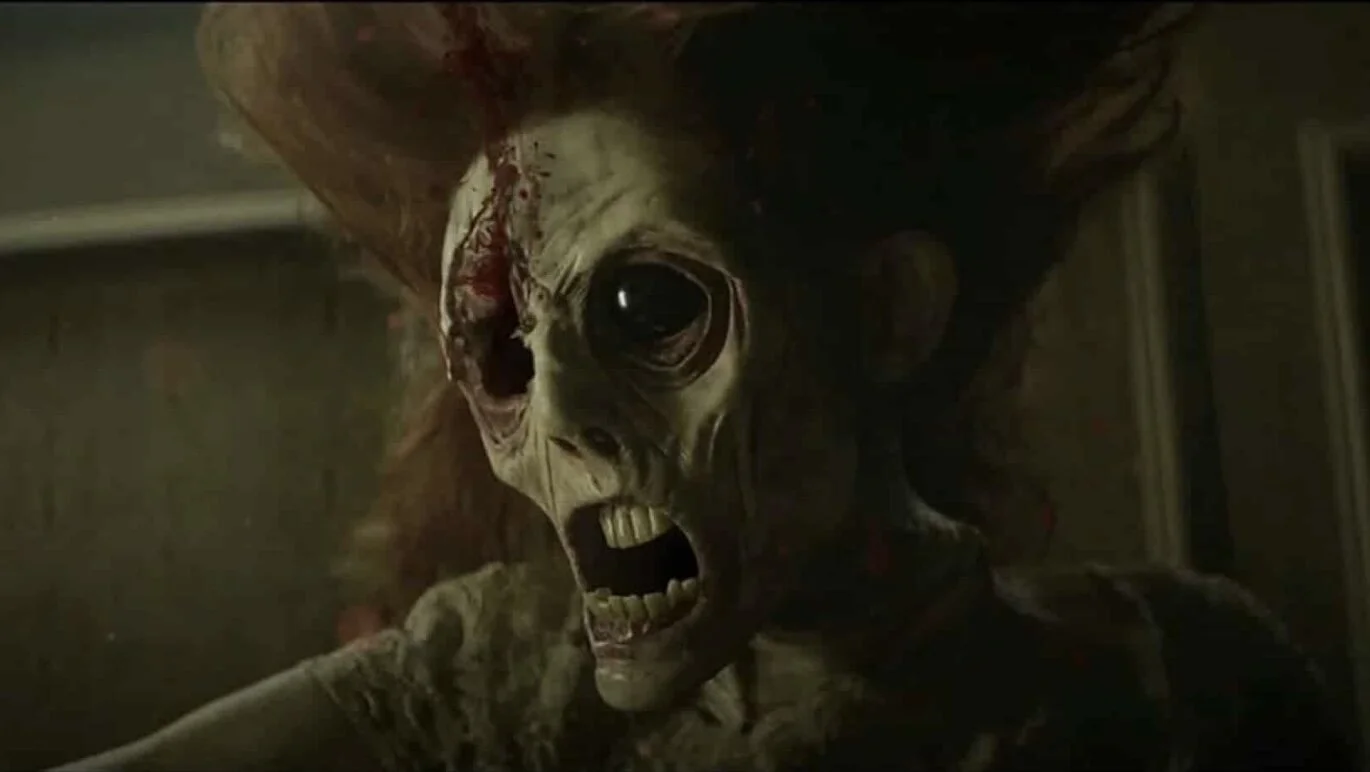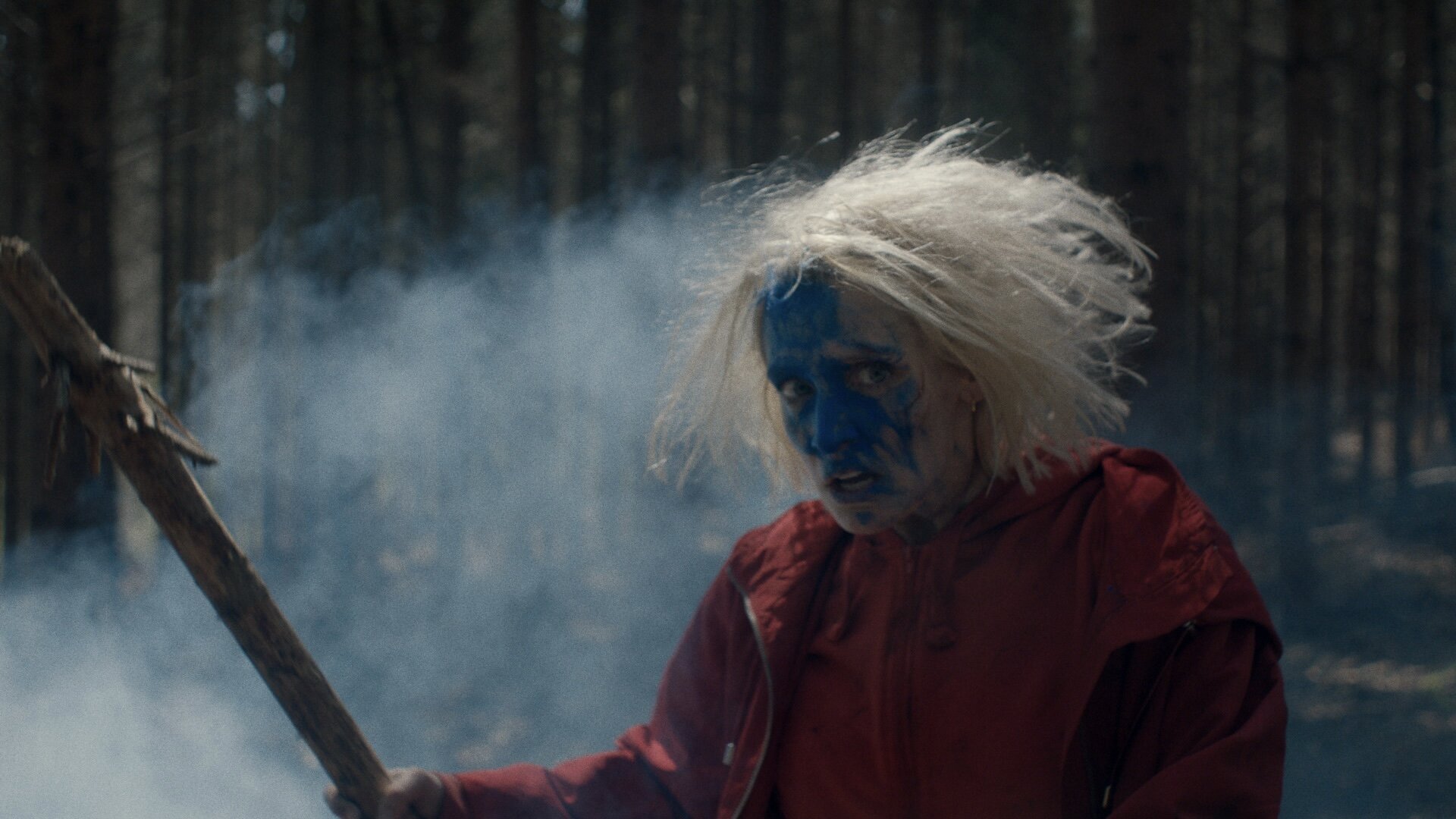Film Review — "The Mortuary Collection"
I. Love. Horror. Anthologies. Probably because I’m a fan of short-form fiction, regardless of the genre… Shorts really do not get the credit they deserve. Some of your favorite long-form creators have also done fantastic smaller-scale projects that punch pretty hard. If you’re a fan of Marty Scorsese, check out “The Big Shave.” If you’re a fan of Guillermo del Toro, check out “Geometria.” If you’re a fan of Stephen King and you haven’t read a single collection, then I regret to inform you that you’re not really a Stephen King fan (just kidding)—also read Night Shift and report back. I mean, c’mon y’all. I might even be willing to argue that short-form writing is tougher. The precision it requires, the attention to pace and tone it requires, the keen voice it requires…
Short-form storytelling is an exercise in economy. And directors like Ryan Spindell offer me hope. His The Mortuary Collection will surly persuade the most ardent of naysayers that well-constructed anthologies rule.
Spindell had me in his grip from the jump. During the opening credits, we follow a paperboy as he bicycles his way around a misty coastal town, where you just know Spooky Shit™ occurs, called Raven’s End—which instantly transported me to Hobb’s End from In the Mouth of Madness, which in turn immediately told me that at least one the stories we were about to witness would veer into cosmic territory. Accompanying and enhancing the sweeping vistas behind the titles is a killer Jerry Goldsmith-esque score by the Mondo Boys that is damn near a character unto itself and fits right in with the nostalgic nature of the movie. It all feels practically ripped from the reels of an Amblin Entertainment picture.
I am fully obsessed with the aesthetic of this film. Even though each entry has a period sensibility, they are not so much set in specific years as they are stylistically set in the idea of heightened bygone eras; the adjacent decades bleed into one another with a seamless fluidity.
The first segment perfectly establishes in just a few minutes what’s to come. It’s a prologue of sorts, more of an apéritif, as opposed to a fully fleshed-out tale, in which a gorgeous 1950s-ish woman at a party opens a bathroom medicine cabinet only to discover that behind the mirror is a realm of ravenous tentacles that cannot be contained again once unleashed. From the get-go Spindell assures us that every installment will be told with a horrific charm and a comedic edge. And a spectacular amount of production value. Seriously, what kind of budget exactly was the production team working with?! I was awe-struck.
Then Spindell, that handsome bastard, undercut me by sliding back to our wrap-around narrative where Sam, played by Caitlin Custer, is decidedly not impressed with Montgomery Dark’s inaugural oration. First of all, rude. Second of all, I could listen to Clancy Brown recount morbid tales all day. His Montgomery Dark is a fabulous “host.” The Mortuary Collection borrows a bit from Rusty Cundieff’s Tales from the Hood insofar that a strange mortician serves as the vessel for these stories as he leads his “audience” around his place of business. Sam, a potential new hire at Raven’s End Mortuary, is his critical listener as part of her impromptu interview. Custer is fine enough, but Brown is the real star of these framing portions. He has a firm command of every scene.
Each tale has a performer that completely steals their respective show. In the entry following the prologue, it’s Ema Horvath—who’s finally appearing in a movie that deserves her after being the only great thing about The Gallows: Act II. Here she’s a supporting character in a story about a fraternity guy who passes out condoms to underclass coeds on a mid-century college campus as a ploy to convince them he’s a feminist so he can get them into a bed surrounded by hardbound books I’m sure he’s never read. But he barks up the wrong tree with Horvath’s Sandra, a young lady with a voracious sexual appetite. Jacob Elordi is so good at being a prick that you’ll quickly become eager to watch his penis receive its cum-uppance, however there’s no topping Ema Horvath’s stony demeanor. Sorry, Jakey.
The next entry is the most somber. I can see why some viewers may find it slow, but I found it stirring and appropriately upsetting. Barak Hardley plays Wendell, a depressed caregiving husband to a catatonic wife whom will likely never regain her consciousness and will likely remain stolid for many more months. Deeply in debt and arriving at his breaking point, Wendell heeds a crummy doctor’s advice and chooses to do the unthinkable. (Although in the wrap-around Sam swears that Wendell did what anyone else would do, hmmmm.) This is a morose entry with a beautifully macabre climax, but sprinkled throughout are lovely bits of comedic relief featuring Wendell’s neighbor Mrs. Avery. Phyllis Applegate is an absolute gem and a beacon of light. When she recommended going to a nude beach in Cancún, I was ready to procure my ticket. We stan a snappy body-positive queen!
The final segment is where things get really interesting. Sam turns the tables on Montgomery Dark and spins a yarn of her own. With the change in POV, we see a befitting though slight shift in aesthetic. We also, I believe, have a different production designer for this portion, which would largely account for that, too. It’s my understanding that this part of the collection pre-existed as a 22-minute standalone short film that Spindell brilliantly interwove into this anthology. “The Babysitter Murders” is a devilish entry that takes a popular subgenre and applies a unique twist that literally made me cheer. The ingenious thing about this final installment is how it completely re-contextualizes what came before it without invalidating any of it. A recurring character also manages to pop up in an unexpected way to remind us that the ominous goings-on in the Greater Raven’s End area could be connected with minimal degrees of separation.
If Ryan Spindell plans to only direct shorts and anthologies for the foreseeable future, then I welcome it. He seems to be one of the best doing it right now, and the world needs more short-form fiction. And if he plans to direct long-form features as well, then I’ll be the first in line for those. He has proven that he not only has a narrative prowess, but that he also possesses a technical proficiency. The sound team in particular deserves extra kudos. I watched The Mortuary Collection with headphones on, and the audial effects—floorboard creaks, thunder cracks, schlocky gushes—are crisp as hell. So I’m convinced that Ryan Spindell is more than suited to do whatever he wants… so long as he brings Clancy Brown, Ema Horvath, and Phyllis Applegate along with him.





